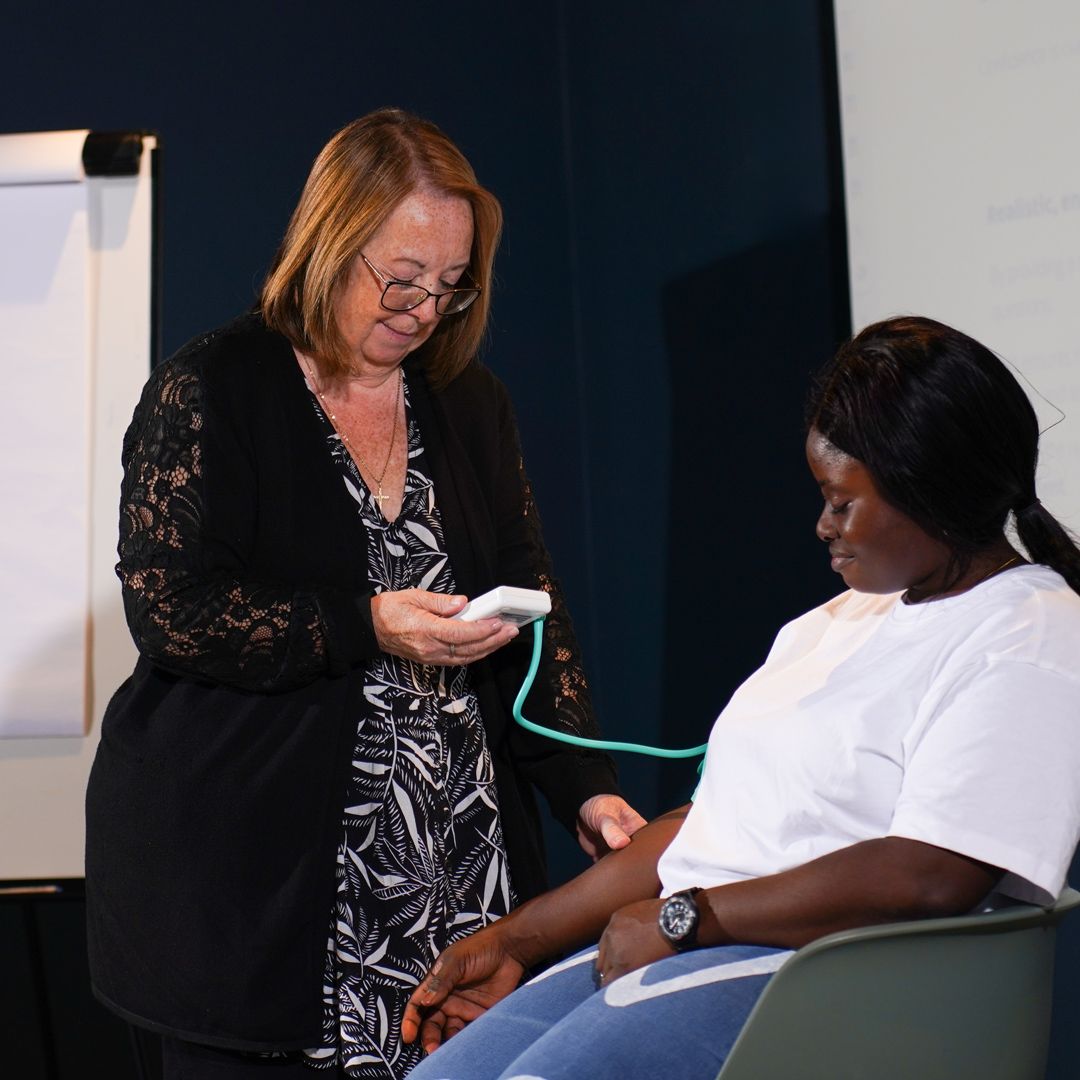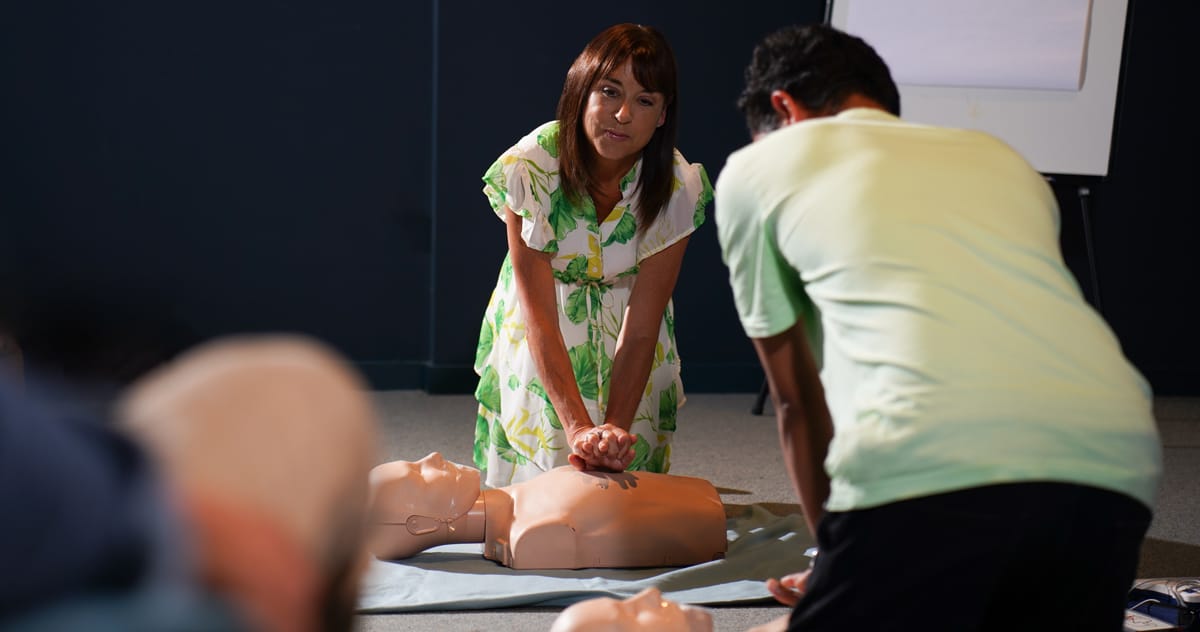Dementia Care in 2025: Why We Should Adopt a Training-focused Approach
Year after year, an increasing number of people in the UK are being diagnosed with dementia, reaching a record 487,432 in June 2024. At the same time, according to a report from Skills for Care, the turnover rate in care related jobs remains high – 29.6% in care homes with nursing during the 2023/24 period – with more than half of employees joining the industry with no relevant health and social care qualifications.
Liz Norton, head of learning and development at Nottinghamshire care home group Church Farm Care, explains how to create a learning culture where every staff member is encouraged to grow, develop their skills and reach their full potential.

Why dementia training?
Alzheimer’s Society recently released a report titled ‘Because We're Human Too’ outlining the benefits of high-quality dementia training across the entirety of the health and social care system. The proposed reform aims to reduce strain on providers across primary, emergency, hospital and community care. The hope is that this will also improve retention, with further data from Skills for Care showing that turnover rate reduces by almost 10% with regular learning, training and development opportunities.
Although this training is incredibly important in a professional setting – reducing need for GP and hospital visits and increasing job satisfaction - the benefits will reach far beyond the workplace. Awareness training has the potential to create a ripple effect, increasing understanding within our local communities. It can be as simple as recognising warning signs and knowing how to interact with someone in your local supermarket or at the bus stop.
Making training accessible for all
No matter how long someone has been in the industry, we believe that the key to engaging people in training is going beyond showing them how to do something and ensuring they understand why they are doing it.
In a single care home, you will see different experience and skill levels spanning from maintenance and kitchen staff to clinical leads and formally trained nurses. In addition to this, the high turnover rates of staff in the industry means constantly juggling a programme that suits a stream of new staff alongside existing care workers who want to build upon their knowledge and skill level. Despite this, we aim to run as much training as possible with the full team, creating an overarching approach that applies to all workers.
For staff members who do have a higher level of knowledge in a certain area, or those who want to progress through their role by upskilling in a specific skill, we have created the role of ‘champion’ in various areas of the business. Not only does this make the most of existing skillsets, but it also allows for more peer-to-peer training, whether this be in a group setting or on a one-to-one basis. This creates an environment where information and knowledge can cascade down through all levels of staff more effectively.
Our ultimate goal is to make training as varied and enjoyable as possible.

Bridging the culture gap
In addition to this, the care profession in the UK often draws workers from across the globe, helping to recruit in roles that can be difficult to fill domestically. We know from experience that international staff bring such a wide range of skills and understanding, making them a wonderful addition to our workforce.
Although it is important that anyone joining the industry has strong spoken English, there might naturally be a few more barriers to learning for non-native workers – and there are adjustments we can make to training to make it more accessible.
Much of the training required in health and social care is practical and hands on, but where theoretical knowledge needs developing, we have digital and eLearning tools that allow workers to access training in their first language. These can also be used to write up reports when needed, using a voice to text function.
Despite much of the focus being on arming our workers with the skills they need to succeed in their roles, we also aim to encourage them to look at long-term career pathways such as diploma level training. We also provide guidance on everything from day-to-day tasks to cultural norms, supporting with accessing healthcare, applying for driving licenses and finding somewhere to live.
As important as it is to ensure all staff are armed with the practical skills to care for those with dementia or other complex needs, there is also a level of mental strength and resilience required when giving this enhanced level of care.

Soft vs hard skills
As important as it is to ensure all staff are armed with the practical skills to care for those with dementia or other complex needs, there is also a level of mental strength and resilience required when giving this enhanced level of care.
To strengthen our training offering, we have introduced a monthly wellbeing focus to our programme - giving our workers increased awareness of topics such as stress, menopause and grief. This can be as simple as letting them know there is someone available to talk to should they need it.
As demand for specialist dementia care grows, and existing challenges around recruitment remain, it’s important for care home professionals to consider the wider impact that a thorough training programme can have. By curating a schedule that takes into account the wide ranging needs of each worker and empowers them to do well, leaders can ensure that workers feel valued in their role, increasing job satisfaction and creating a workforce who stay in the industry long term.
About Church Farm Care Church Farm Care homes are innovative, research led and multi award-winning. All homes are rated ‘outstanding’ and ‘good’ in all areas by the Care Quality Commission and all are rated as a band five home by Nottinghamshire County Council; the highest rating that can be achieved on the quality of care and service used by the council. Church Farm Care champions a person-centred relationship-focused approach to care which is focused on compassion, patience, kindness, empowerment. Church Farm Care follow the Meaningful Care Matters model.